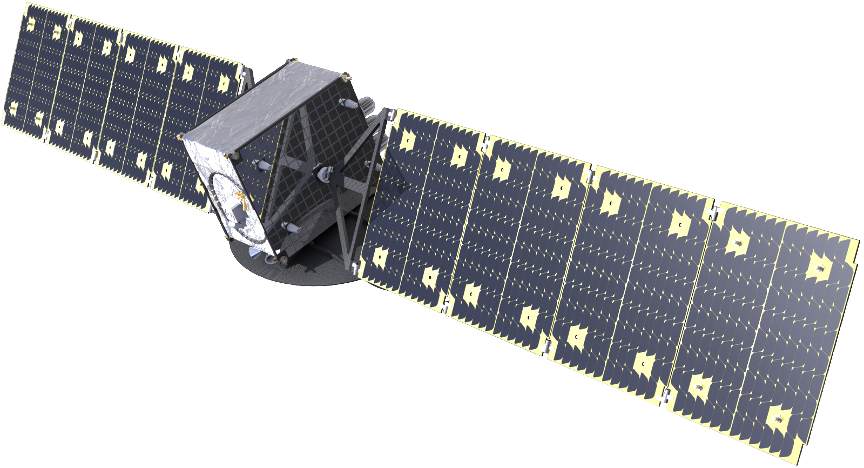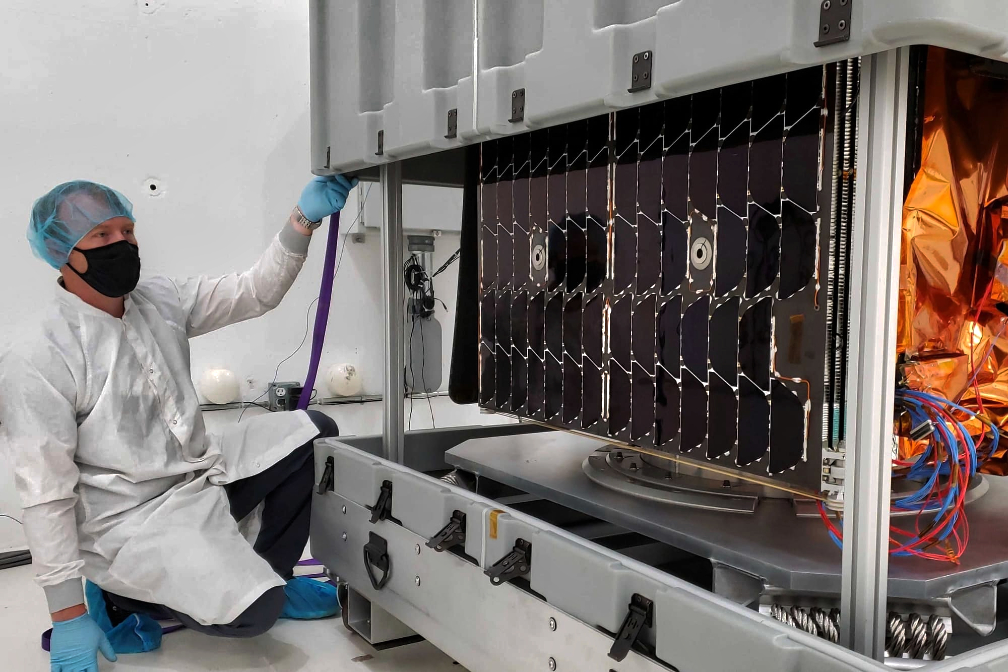
Astranis Space Technologies Corp.’s first MicroGEO satellite is ready for launch after the successful completion of final testing.

Astranis has now completed all major tests necessary for its first MicroGEO spacecraft to be ready to ship to the launch site, including vibration and vibroacoustic tests, final solar array and antenna deployment tests, propulsion system tests, software tests, and electrical checkouts. This follows a successful thermal-vacuum, or TVAC, test campaign that was concluded late last year.

Vibration and vibroacoustic tests, collectively known as the vibe test campaign, are some of the most intense tests of structural and mechanical endurance for any spacecraft. During vibe, the vehicle was subjected to low-to-mid frequency mechanical vibrations and mid-to-high frequency acoustic vibrations simulating the extreme forces it must withstand during launch. Afterward, Astranis engineers performed a final series of software and hardware checks to ensure the payload is fully functional and the satellite remains mission-ready.
When the satellite enters service later this year, with capacity leased exclusively to Alaskan satellite, middle-mile provider, Pacific Dataport Inc. (PDI), it will have an immediate impact on bridging the state’s digital divide. The compact but powerful MicroGEO satellite is expected to triple the state’s currently available satellite bandwidth while providing true broadband speeds and reliability to consumers at roughly one-half the cost of existing services.

Astranis MicroGEO satellites are 1/20 the size and cost of traditional GEO communications satellites. With a lower price tag and much shorter build times when compared to legacy satellites, Astranis provides dedicated satellite bandwidth as a service, allowing customers such as PDI to connect people in places that have been overlooked, underserved, or priced-out of the market for fast, reliable broadband internet.
“Having passed this final sequence of tests, our first commercial satellite is now officially ready for launch,” said John Gedmark, CEO and co-founder, Astranis. “Passing these checks is always something to celebrate, but this time it’s especially meaningful because we’re building something new the world has never seen before and sending it to space for the very first time.”
“Complete and ubiquitous coverage of Alaska has been our primary mission from the start and Astranis is helping us achieve that,” said Chuck Schumann, CEO, Pacific Dataport Inc. “Alaska is the largest state with the lowest population density so naturally we hear from people every day who live in very isolated places, telling us how hungry they are for fast, reliable broadband internet service. Imagine a village with few roads that is only accessible by a small airstrip. There are no cell towers, no cable, and no fiber. Affordable, reliable broadband is a generational change for a community like that and this satellite is going to help us bring this change for our entire state.”
